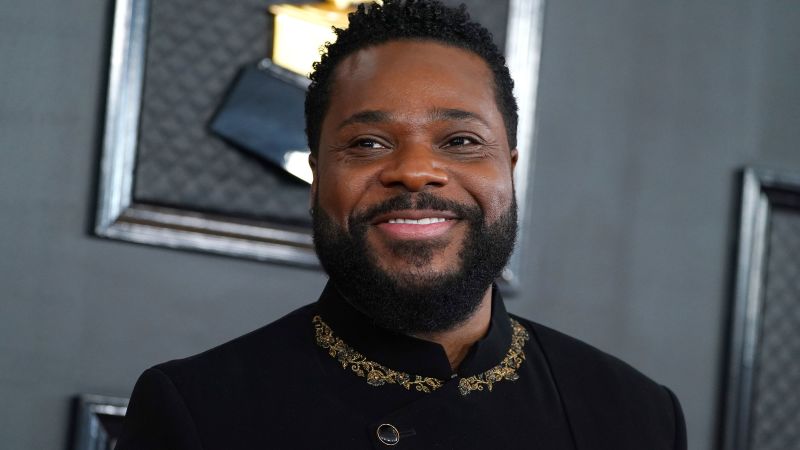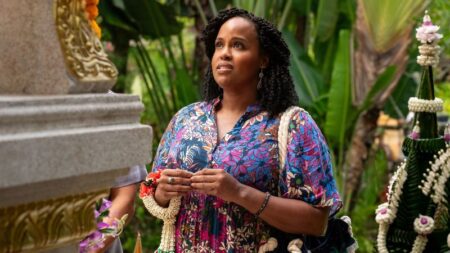The passing of Malcolm-Jamal Warner has left a profound void in the hearts and minds of many, particularly among those who grew up as Black individuals in America during the 1980s. To millions, he symbolized more than just a talented actor; he embodied the essence of family, possibility, and hope. His portrayal of Theo Huxtable on “The Cosby Show” resonated deeply with viewers, marking a significant cultural milestone that showcased a thriving Black family, where excellence was not just expected but celebrated.
Before the historical significance of Barack and Michelle Obama’s presidency, the Huxtables emerged as a powerful cultural reference point for Black representation in media. Theo Huxtable, played by Malcolm, represented a generation of young Black boys who not only saw themselves in him but also felt inspired by the character’s journey. The character stood as a beacon, guiding viewers through the lessons of life with charm and humility, reinforcing positive images of young Black men who could aspire to greatness without compromising their identity.
“The Cosby Show” was transforming, not merely because it featured Black characters but because it depicted them thriving in a narrative filled with complexity and warmth. Cliff, an accomplished doctor, and Clair, a successful lawyer, served as aspirational figures raising intelligent and remarkable children. Theo was portrayed as the relatable everyman, grappling with the challenges of adolescence and family life while making memorable impressions on the audience. This portrayal mattered enormously; it broke the stereotypical molds that had long dominated television narratives involving Black characters.
The implications of the show reached far beyond entertainment. For decades, television upheld narrow and often negative portrayals of Black people, frequently depicting them as butlers, maids, or criminals. In stark contrast, Theo—much like Malcolm himself—embodied a rich, multifaceted existence. The representation of a middle-class Black family, characterized by its collective ambition and success, redefined societal perceptions and drew millions of viewers weekly, profoundly shifting the collective consciousness of the nation.
For many individuals, including those raised in households with professional parents, the connection to Theo’s character was striking. Malcolm made countless young viewers feel recognized and understood, weaving a narrative that resonated with their own experiences. Importantly, Malcolm’s career did not stagnate with “The Cosby Show.” Rather, he pursued an artistic path marked by thoughtfulness and a commitment to raising awareness about deeper societal issues, including mental health and the complexity of the Black experience. He used his platform to challenge the often-predictable narratives surrounding Black individuals, fostering conversations rooted in honesty and authenticity.
In Hollywood, where child stars frequently succumb to pressures and distractions, Malcolm-Jamal Warner emerged as a model of integrity and resilience. Whether through “Malcolm & Eddie,” his Grammy-winning music career, or thoughtful podcasts, his work echoed an important truth: our identities are layered, diverse, and ultimately deserving of celebration. The loss of Malcolm evokes feelings akin to losing a beloved family member for those in their 40s, 50s, and beyond. It leaves a poignant emptiness, a reminder of shared cultural milestones when families converged around the television screen to engage with groundbreaking content together.
Despite the controversies that have marred the legacy of “The Cosby Show” in recent times, it remains essential to acknowledge the positive contributions of its cast, including Warner and his former co-stars like Lisa Bonet, Tempestt Bledsoe, and Keshia Knight Pulliam. They collectively upheld the show’s promise of dignity and excellence amid the complexities of their storied careers.
Mourning such a significant figure as Malcolm-Jamal Warner is a necessary act, reflecting not just personal loss but a collective remembrance of his profound impact on representation in television. His presence was a striking reminder of how rarely we witnessed Black youth in empowering stories devoid of the chains that often bind narrative creativity.
Through Malcolm’s contributions, he not only brought awareness but also paved a path for future generations. His unwavering commitment to portraying complexity and authenticity underscores the need to honor his legacy by continuing the dialogues he inspired and advocating for the humanity he celebrated. Rest in power, Malcolm-Jamal Warner; your influence and spirit will undeniably live on.











